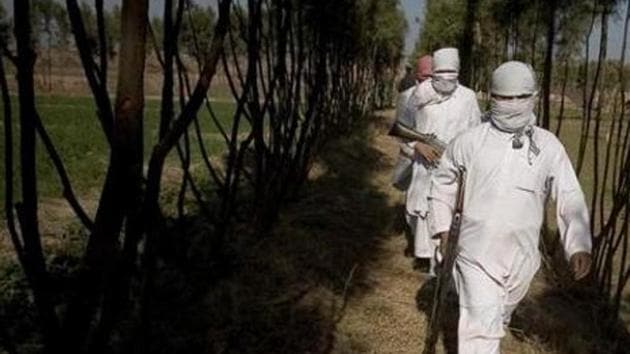Two professors bring fresh perspective to terror threat
The study states that terrorism may not be so worrisome after all from the view of an individual Indian.
India isn’t fourth among countries of the world in terms of number of terror attacks, but 82nd if its huge population is taken into account, a new study has claimed.

Individual governments and global organisations have till date assessed the level of risk from terrorism on the basis of total terror attacks or the number of victims of such attacks. However, two professors have presented a new perspective to the threat terrorism poses.
The study, titled ‘Terror per Capita’, carried out by David Stadelmann of University of Bayeruth, Germany and Michael Jetter from the University of Western Australia, analyses terror attacks in 162 countries between 1970 and 2015 by dividing the total number of terror attacks by the population.
On the basis of this, India ranks not fourth but 82nd.
The study states that terrorism may not be so worrisome after all from the view of an individual Indian.
When ranked by terror per capita, Nicaragua (241 attacks – annual average from 1970 to 2015) actually tops the list of most affected countries, followed by El Salvador (274 attacks), Iraq (1,131), Lebanon (88) and Sri Lanka (353).
India, with annual average of around 408 attacks, is much below at 82nd rank.
However, when it comes to total terror attacks, a methodology usually followed governments, Iraq tops the list, followed by Afghanistan, Pakistan, India and Sri Lanka.
Stadelmann and Jetter have used the data of Global Terrorism Database (GTD) for their research.
Their findings also debunk theories that terrorism is more prevalent in Islamic countries or countries with a higher Muslim population. For example, Indonesia, where 84% of population (out of 258.2 million) identifies itself as Muslim, ranks 39th worldwide when it comes to number of attacks, but a lowly 120th when the population is taken into account.
Stadelmann and Jetter argue in their research that general comparisons between different countries in terms of standard of living, income, health and unemployment are measured on the basis of per capita, but that policymakers generally take the total number of terror attacks into account while drawing up counterterror and security policies.
Stadelmann and Jetter also believe that such policies should not be based on the number of attacks or casualties but on “terror risk” and the number of attacks per capita.
Indian internal security expert Ajai Sahni, has a different view. “Terror per capita is a distinct measure and, depending on the purpose of assessment, may offer a more sound basis for national security threat,” he admitted, but wondered which population should be taken to calculate the per capita number.
“For a local insurgency such as Kashmir or, earlier, Punjab or Tripura, or one of the many other insurgencies that have afflicted the North-east, or the Maoist rebellion, is it the per capita population of the afflicted state or region against which the violence is to be measured or the national population? If an insurgency in a small state such as, say, Punjab at its peak, threatens the integrity of the state, would a per capita incidence against the national population be the right measure to assess the security threat? I think that would be a mistake. Essentially, the answer will change depending on the context and on what policy purpose such assessments are intended to serve.”
Security assessment should not be based on single parameter, he added.
Get Current Updates on India News, Lok Sabha Election 2024 live, Infosys Q4 Results Live, Elections 2024, Election 2024 Date along with Latest News and Top Headlines from India and around the world.



